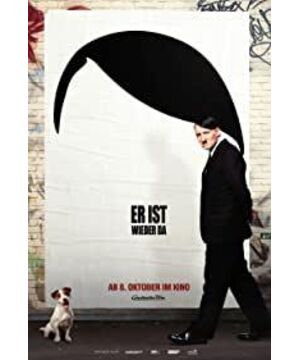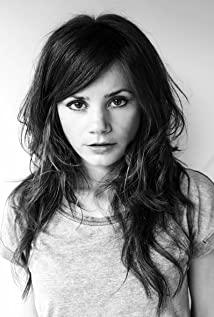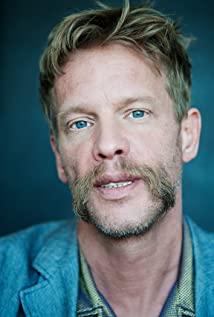There are a lot of experts in the interpretation of the picture, so I don't know how to deal with it.
Just write from other aspects.
Throughout the story, only three people opposed Hitler. The male protagonist, the Jewish grandmother and the uncle of the square. The male protagonist feared Hitler for love, and the Jewish grandmother and Uncle Plaza because of Hitler's persecution of the Jews. What the three people have in common is that they hate Hitler because of the genocide. I don't know if this is the consensus of the German people, but it is the mainstream view of young people in our country. Hitler's greatest crime was to involve the people of Europe, including Germany, into the abyss of an unresolved war.
A political comedy, the male protagonist does not have a single political statement from beginning to end, which is an interesting way. What does he care about? How to rely on Hitler to make a fortune, how to hook up the Goth girl paper, how to protect the Goth girl paper. Yes, like the Hollywood protagonist, the hero of the film was laid off at the beginning of the film, and he used a video to change his life against the sky and control the money and right-handed women. No, it's a double harvest in the love career. In the end, he was supposed to kill Hitler and become a hero, but he was imprisoned in a mental hospital for all day long. Similarly, Gothic Meizhi and her friends are only passionate about Satanism. Perhaps this mentality, which is not about politics, is a true portrayal of German youth.
The Jewish grandmother, a witness who survived the Nazi slaughter, represents the mainstream media view that Hitler slaughtered Jews, so he was the devil. Uncle Plaza, he has been told to hate hitler. His hatred of Hitler, as we now cry out to bring down the Gang of Four, is a historical experience. And this experience has narrowed from the protection of the grandmother to the entire European Jewish tribe, to the fact that the male protagonist only protects his lover.
This reduction is very common, and it is more obvious in other characters in the film. The narrow-minded deputy director loves and hates Hitler only because of his position. The host hates Hitler because he robs him of the limelight and fights the Democratic Party. The chairman of the flag of life, in order to pretend to be cool and worship the young people such as Nazis, Satan and so on. Almost all those who care about politics only see the refugee problem.
So Hitler keenly discovered the problem-the people don't care about politics because they can't do anything about it. There is a speech by Hitler on coffee. Who is in charge of Starbucks? There is also a comment on the TV show. The actor's expression is stiff, and Goebbels must be unhappy when he sees it. This attitude of making the people demand the government to be accountable is eye-catching. He once again played the trick of "representing public opinion" and successfully appeared in the public eye.
As a political commentator, Hitler did not utter misfortune, but fell to the verbal criticism of dog lovers. After the repackaging, there was a comeback, and there was still prosperity and even a diehard loyalty.
Sure enough, it's not that the people don't care about politics, but that the people are farther and farther away from politics and are more and more confined to their own interests. This is the biggest irony of the film.
When the male protagonist forced Hitler to the rooftops, and I thought everyone was awakened by it, Hitler appeared behind the male protagonist: "You can't kill me, because I live in each of you."
Just like 80 years ago, When everyone was silent, Hitler became their mouth, telling the nations that we want to develop and expand, and the people got bread and jobs. Now that Hitler once again represented the people, everyone chose to remain silent. Just like the female director, knowing that this is the real Hitler, but choosing to follow.
In addition to bread and work, the German people 80 years ago also received wars and unequal treaties still in use today.
The film also proposes a discussion about the refugee issue in Germany. Hitler’s propaganda of national equality is as ridiculous as spreading democracy with a Guy Fawkes mask. Hitler’s biggest label is extreme populism, and those silent followers cannot ignore it. at this point. The expulsion of refugees is also one of the main views of the German people in reality. Perhaps the film wants to remind people of the disaster dominated by the ultra-left party.
over
View more about Look Who's Back reviews









